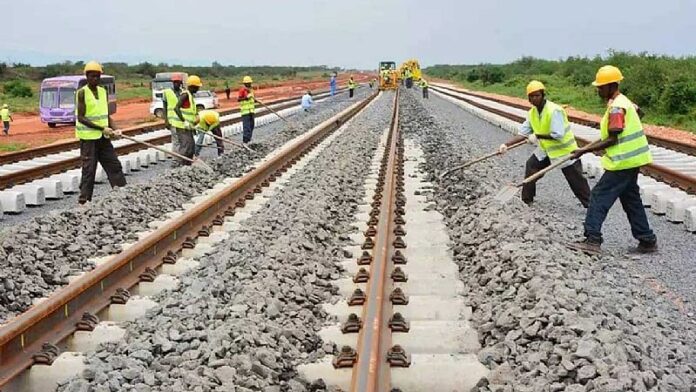Borno State is set to embark on two transformative urban development initiatives aimed at modernizing the state’s infrastructure and enhancing its identity: an intra-city rail project and a comprehensive street naming exercise. These groundbreaking projects, announced by the state government, promise to elevate the socio-economic landscape of Borno, particularly its capital, Maiduguri.
The intra-city rail project is expected to provide a sustainable, efficient, and affordable transportation system for residents. With Maiduguri’s population growing rapidly, the introduction of a rail system will significantly reduce traffic congestion, improve mobility, and create an eco-friendly alternative to the existing modes of transport. The rail network will link major residential and commercial areas, ensuring seamless connectivity and boosting economic activities across the city.
Governor Babagana Umara Zulum, known for his forward-thinking leadership, has emphasized the importance of the rail project in reshaping urban transportation. “The intra-city rail system will not only ease movement within Maiduguri but will also serve as a symbol of progress and resilience for our people,” the governor remarked. He also noted that the project aligns with global sustainable development goals, particularly in fostering green and inclusive urban growth.
In addition to the rail initiative, the state government is rolling out a comprehensive street naming project aimed at standardizing addresses and enhancing urban organization. The exercise will involve assigning official names to streets, roads, and major landmarks, making it easier for residents, businesses, and emergency services to navigate the city.
The street naming project is also expected to preserve the cultural and historical heritage of Borno. Names will be carefully selected to reflect the region’s rich history, prominent figures, and significant events. Governor Zulum has called on traditional leaders, community stakeholders, and historians to collaborate with the government in ensuring that the project captures the essence of Borno’s identity.
The dual initiatives are projected to create numerous job opportunities for locals, ranging from construction and rail operation to data collection and mapping for the street naming project. Moreover, the projects will attract investments, as improved transportation and urban organization are key factors for businesses looking to establish a presence in the state.
Residents have expressed optimism about these developments. A Maiduguri-based entrepreneur, Adamu Shettima, stated, “The rail system will make commuting more convenient, while the street naming project will give businesses like mine a proper address, making it easier for customers to locate us.”
However, there are concerns about potential challenges, including funding, timely project completion, and ensuring minimal disruption during construction. The state government has assured citizens of its commitment to addressing these issues, promising transparency and efficiency in executing the projects.
With the planned launch of the intra-city rail and street naming projects, Borno State is taking bold steps towards urban renewal and modernization. These initiatives not only reflect the resilience of a state rebuilding from years of insurgency but also highlight its ambition to emerge as a model of sustainable urban development in Nigeria.




